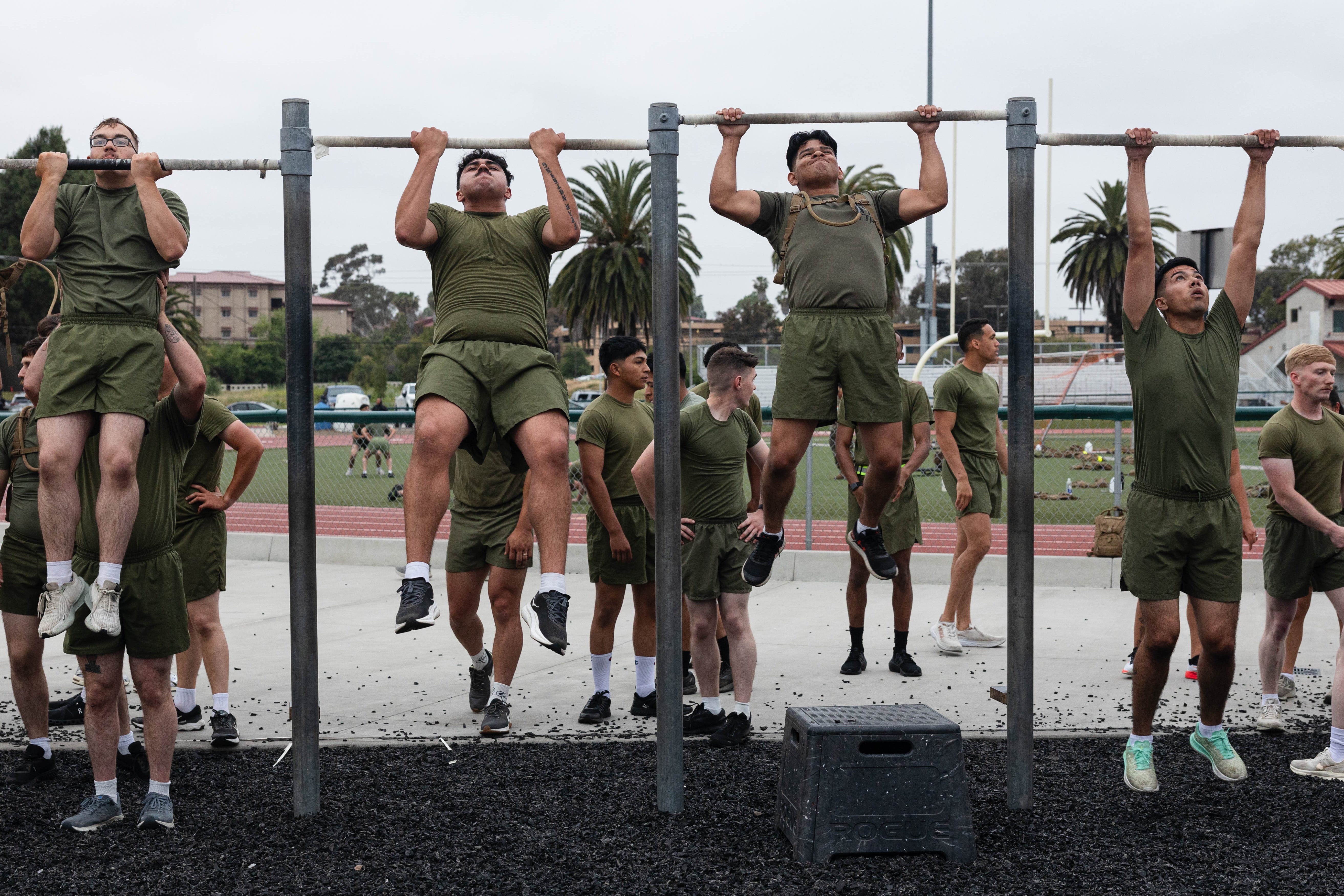
Sgt. Casandra Marrero/US Marine Corps
- New guidelines intend to prevent life-threatening muscle breakdowns in troops.
- Exertional rhabdomyolysis, or “rhabdo,” is caused by exertion or heat, leading to severe health issues.
- Plans include better diagnostic tools and recovery plans for at-risk military personnel.
A new military playbook could help leaders prevent life-threatening muscle breakdowns in American troops.
Exertional rhabdomyolysis, known as “rhabdo,” is a serious medical condition brought on by physical exertion or even heat exposure, according to the US Centers for Disease Control and Prevention, and it has sidelined hundreds of US troops in recent years, prompting the military to look closely at how to spot it.
Rhabdo occurs when damaged muscle tissues release proteins and electrolytes into the bloodstream, damaging organs. Symptoms, which can mimic those of other heat-related illnesses, include nausea and vomiting, kidney damage, heart arrhythmias, and in some cases death or permanent disability.
Because it can look like other common illnesses, exertional rhabdomyolysis can be tricky to diagnose and easily missed.
Dr. Francis O’Connor, a professor of military and emergency medicine, said in a military news release that new policy changes will help protect troops and speed up recovery times with clearer diagnostic criteria and better ways to identify at-risk troops.
Troops most at-risk include those with excessively elevated muscle enzymes, muscle compartment syndrome, kidney issues, or sickle cell trait, which the Army tests for. More mild cases can be managed outside the hospital.
Dr. David DeGroot, director of the Army Heat Center, said that his team “frequently” sees exertional rhabdomyolysis cases, with heat illnesses and on its own. The new clinical practice guidelines that the military has not only help spot this condition, but it also gives providers a resource to get injured troops back to work “as quickly as possible” without putting their health at risk, he added.
The US military has waged serious campaigns against heat-related illnesses for years, especially throughout the Global War on Terror as troops fought frequently in hot climates overseas. Most military bases today mark weather conditions with colored flags, in part to alert troops to hot temperatures that could prove unsafe for outdoor training.
Rhabdo, meanwhile, has garnered less attention, despite a recent uptick in military cases.
A Defense Health Agency report published in 2024 found an increase in military rhabdo cases over the preceding four years, with nearly 530 troops suffering from the condition during that time.
In 2024, a US Navy SEAL made headlines after leading an unsanctioned workout for his alma mater’s lacrosse team, putting 24 of 61 students in the hospital, all were diagnosed with rhabdo. The sailor was later found by a university review to be unqualified for such physical training oversight.
Read the original article on Business Insider
The post The US military wants to get better at spotting this dangerous muscle breakdown before it puts troops in the hospital appeared first on Business Insider.




